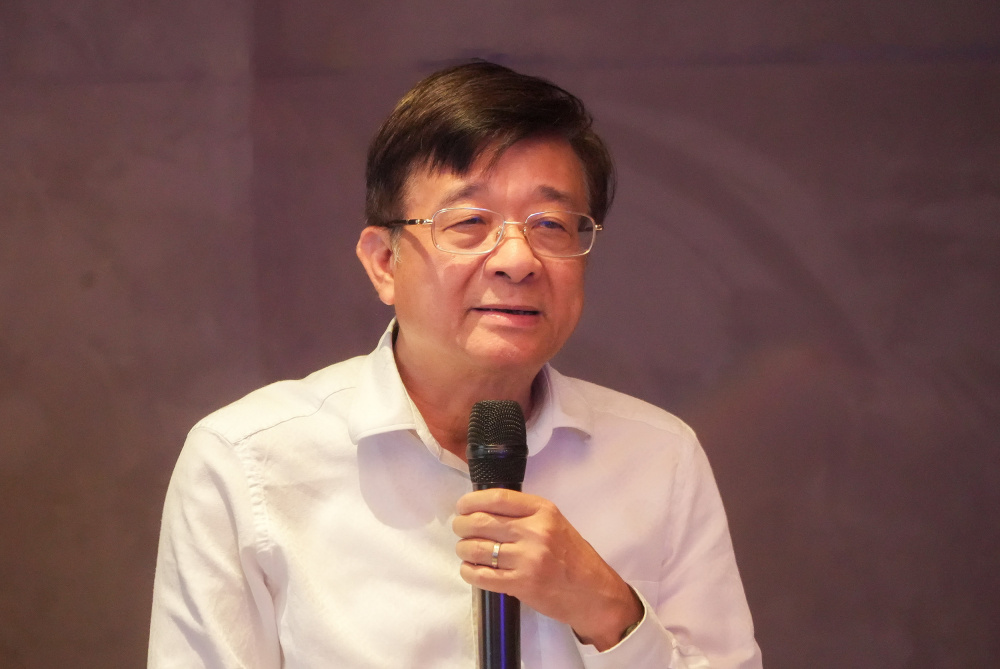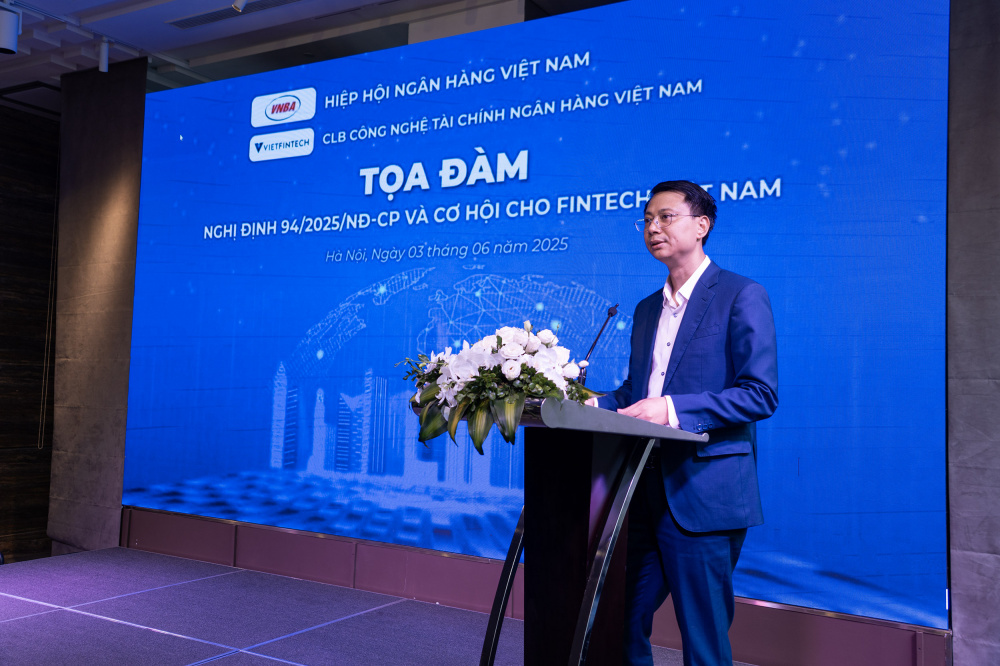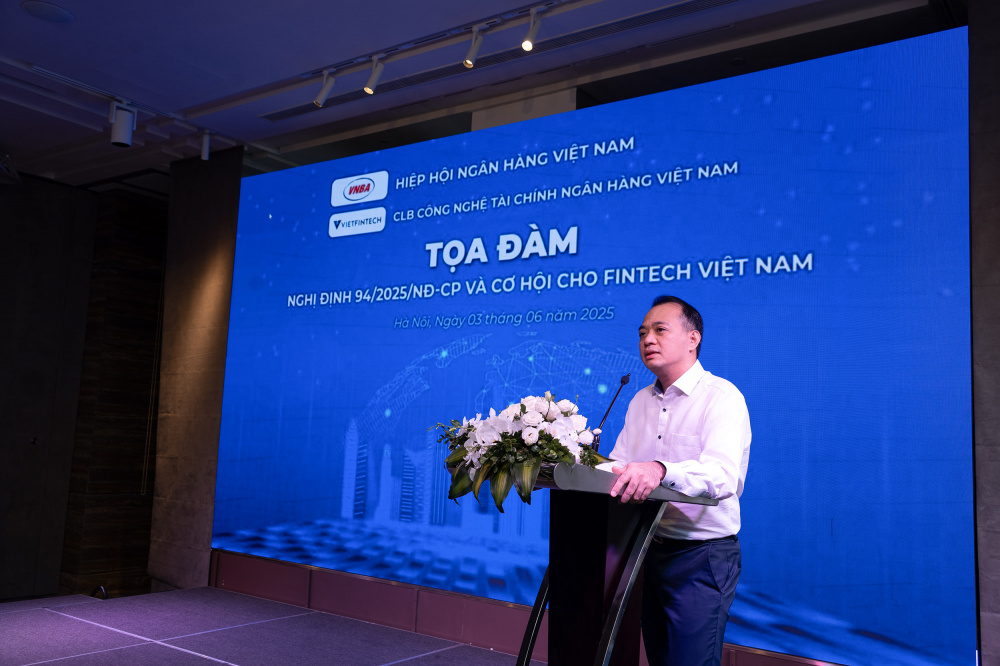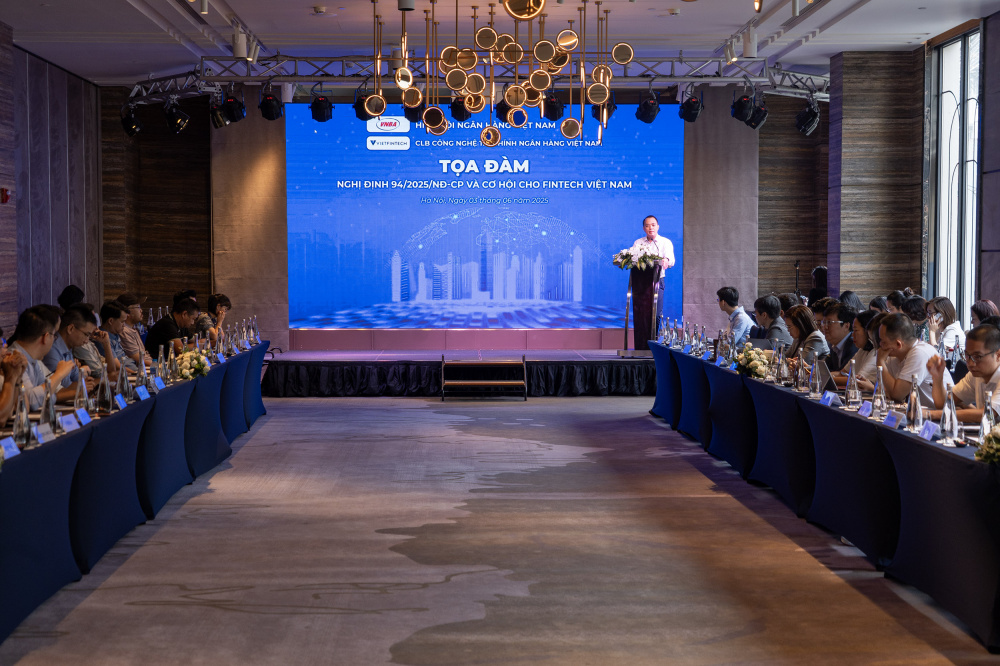
VNBA Vice President cum General Secretary - Dr. Nguyen Quoc Hung
Decree No.94/2025/ND-CP – A breakthrough direction for Fintech Vietnam
Speaking at the seminar, Mr. Le Anh Dung - Deputy Director of the Payment Department, State Bank of Vietnam emphasized that in the context of the Fourth Industrial Revolution (Industry 4.0) taking place strongly around the world, Vietnam has been proactively seizing opportunities and actively responding to challenges. The banking industry, as the lifeblood of the economy, has continuously promoted the application of advanced technologies such as AI, Big Data, Blockchain, RPA, API, biometrics, digital credit scoring, etc. to improve operational efficiency, innovate products and improve customer experience.
However, along with dynamic development, the models of financial technology (Fintech) also pose many challenges to state management, such as: money laundering risks, cybersecurity risks, personal data violations, and especially legal gaps with new business models.

Mr. Le Anh Dung - Deputy Director of the Payment Department, State Bank of Vietnam
Recognizing this issue, since 2019, the State Bank has proactively researched and developed a Regulatory Sandbox Project in the banking sector. This project aims to facilitate Fintech initiatives to operate within a clear legal framework, while helping management agencies assess risks and perfect appropriate policies.
Based on the Law on Credit Institutions (amended) passed by the National Assembly on January 18, 2024, the Government has officially issued Decree No. 94/2025/ND-CP, marking an important milestone in establishing a legal corridor for FinTech testing activities in Vietnam.
Accordingly, Decree 94 consists of 5 chapters and 26 articles, specifically regulating the testing mechanism for three key areas: credit scoring, peer-to-peer lending, and open application programming interface (Open API).
The testing mechanism is organized according to the principles of transparency and publicity, does not replace the official business license, and is limited in scope and time (maximum 2 years, extendable). Testing is not conducted cross-border and must comply with standards on security, consumer rights, and system safety.
The testing process includes the following steps: Registration, Appraisal, Certification, Testing implementation, Monitoring, and Testing completion, with the State Bank as the presiding agency, coordinating with relevant ministries and branches.

Mr. Nguyen Dang Hung - Chairman of VietFinTech Club
The Fintech community received it positively
Mr. Nguyen Dang Hung - Chairman of VietFinTech Club shared at the seminar: “The birth of Decree 94 not only opens up new opportunities for FinTech Vietnam, but also affirms the Government's strong commitment to supporting innovative startups. This is an important turning point, laying the foundation for building a legal framework suitable for the rapid development of financial technology.”
He also said that the process of building this Decree from 2017 to present is the result of inter-sectoral cooperation, extensive consultation with experts and the business community, demonstrating the receptiveness and initiative of the management agency.
According to Mr. Nguyen Dang Hung, VietFintech Club organized the Seminar to disseminate and explain policies so that units operating in related fields have more information and understand the regulations, and at the same time discuss new opportunities for Fintech Vietnam.
At the seminar, many FinTech businesses had the opportunity to directly share the difficulties and challenges in the process of operation, especially when moving from a “legal gray zone” to a transparent and controlled testing mechanism. Opinions are expected that Decree 94 will be an important stepping stone to forming a safe, effective, scalable and highly adaptable Fintech ecosystem.

Commitment to accompany and perfect the legal corridor
Speaking at the seminar, Dr. Nguyen Quoc Hung - Vice Chairman and General Secretary of the Vietnam Banks Association welcomed and highly appreciated the timely organization of the seminar by VietFintech Club to discuss Decree 94/2025/ND-CP. He said that today's seminar is not only a forum for sharing policies, but also a testament to the effective coordination between state management agencies, industry organizations and the business community.
"We are committed to continuing to accompany units, listening and absorbing feedback from practice to contribute to perfecting the legal corridor, and unlocking resources for innovation.", Dr. Nguyen Quoc Hung shared.
Vice President cum General Secretary Nguyen Quoc Hung added that in the field of testing, there are many things that both businesses and management agencies do not know. Therefore, the willingness of management agencies to open up and be open about policies to test new models is very valuable.
He also expressed his appreciation for the role of VietFinTech Club in connecting members, organizing policy dialogues and bridging businesses with management agencies. At the same time, he hoped that in the coming time, VietFintech Club will continue to organize more seminars and workshops to discuss more deeply with credit institutions and related units.
At the seminar, opinions were unanimous that, in the context of strong digital transformation, Decree 94 is expected to be a solid foundation for Vietnam to build a dynamic, creative and sustainable FinTech ecosystem, contributing to promoting financial inclusion and developing the national digital economy.
The event not only provides practical information for organizations operating in the field of Fintech, but also creates opportunities for discussion, connection and opens up new expectations for the development of the Fintech ecosystem in Vietnam.
On April 29, 2025, the Government issued Decree No. 94/2025/ND-CP regulating the sandbox in the banking sector.
This Decree regulates the controlled testing mechanism in the banking sector (called the Testing Mechanism) for the implementation of new products, services, and business models through the application of technological solutions (called financial technology solutions).
Financial technology solutions (abbreviated as Fintech solutions) participating in the testing of the Testing Mechanism include: a) Credit scoring; b) Data sharing via open application programming interface (Open API); c) Peer-to-peer lending.
Applicable subjects include: Credit institutions, foreign bank branches as prescribed in the Law on Credit Institutions (not applicable to point c above); financial technology companies; competent state agencies; customers and other organizations and individuals related to the Testing Mechanism.
VNBA News
